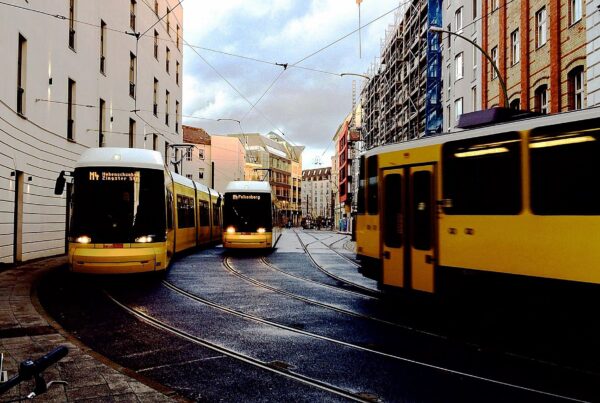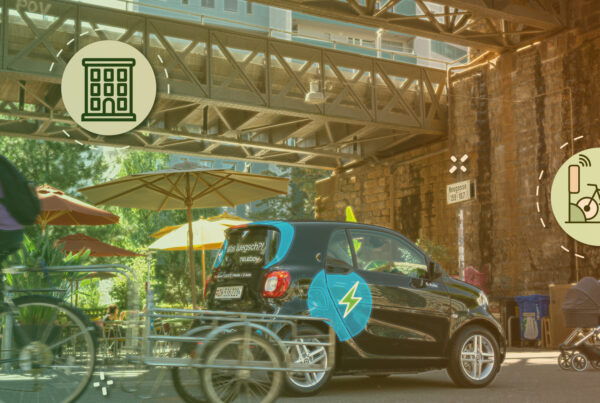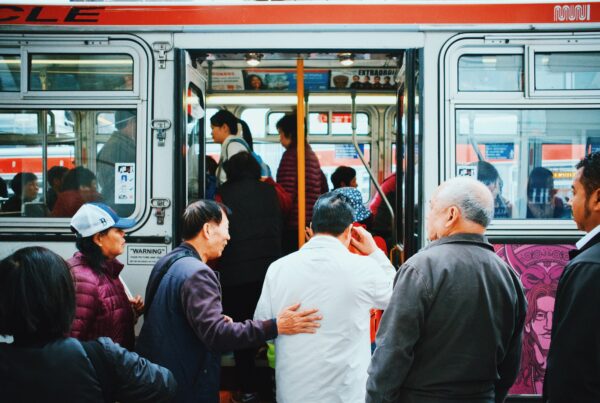The Mobility Hub
Your weekly guide to the latest in shared mobility
SUMC News and Announcements
See our newest speakers, panelists, and hosts
Catherine Bracy, CEO & Co-Founder, TechEquity Collaborative
Julia Kumari Drapkin, CEO & Founder, ISeeChange
Samantha Herr, Executive Director, North American Bikeshare Association
Jerome Horne, Transportation Planning Communications and Engagement Specialist, Foursquare ITP
Jarred Johnson, Director & COO, TransitMatters
Jana Lynott, Senior Strategic Policy Advisor, AARP Public Policy Institute
Chris Pangilinan, Head of Global Policy for Public Transportation and Accessibility, Uber
Dr. Mimi Sheller, Sociology Department Head / Professor / Director for Center Mobilities Research & Policy, Drexel University
Karina Ricks, Director, Mobility and Infrastructure, City of Pittsburgh
Sam Zimbabwe, Director, Seattle Department of Transportation
There are even more new faces on the Summit Speakers page.
Announcing the 2021 Mobility Justice Spotlight
New on the SUMC Learning Center: The Role of Data Specifications in Creating an Integrated Transportation System
Ever wonder how information for transit routes, bikeshare systems, on-demand transportation, and curb regulations are shared? Easy answer: there’s a data specification for that. Read more about these specifications and standards, how they can be useful for you, and the communities that work to develop them in the SUMC Learning Center’s most recent case study.

Mobility Justice
Brookings Center for Technology Innovation will be hosting a webinar on June 2 to discuss the Biden administration’s internet infrastructure proposal and if it can mend the gaps in equitable broadband access for rural and low-income areas in the US. Learn more and register.
If you happen to be in Chicago’s North Lawndale neighborhood before June 15, the grassroots mini-museum Lawndale Pop-Up Spot will be hosting a new exhibit called Moving Freely that ties together the history of transportation access, freedom of movement, and racial justice.
Washington state wants to slice emissions with a new cap-and-trade bill, signed by Governor Jay Inslee on Monday. Thanks to environmental justice advocates and tribal communities, it includes measures to address transportation inequality, but critics say it falls short in offsetting carbon.

Ridehailing/Carsharing/Carpooling
Seen as one of the largest mergers in Asian tech history, Indonesian mobility platform GoJek and Tokopedia have merged to form a new group called GoTo Group for “strengthened business solutions” and its valued at a spiffy $18 billion.
Policy Director for the Coalition for Clean Air Bill Magavern calls on the California Air Resources Board to move forward with a new proposal that will help electrify ridehail fleets by 2030, cutting emissions from Redding down to San Diego.
When towns of 50,000 people or less need safe, affordable transportation that doesn’t require getting behind the wheel, what can they turn to? Via is sure (with data to boot) that on-demand microtransit options will serve rural areas with the flexibility and lower cost needed for less dense, budget-strapped areas.

Bikesharing & Micromobility
Get ready for a new micromobility option, Londoners. At long last, Dott, Lime, and Tier are launching their dockless scooter-sharing services across six boroughs and local authorities in trials that begin June 7.
Citi Bike expansion in New York has a lot of public support—with 63% of poll voters approving bikeshare expansion—so the next mayor of the city must take the mode seriously if they want to decongest the streets and create safer, healthier spaces for people. (Luckily, 4 out of the 8 candidates support public funding for bikeshare growth.)
Head west this summer and you’ll likely see some pedal-assist e-bikes (nearly 200 of them) in Milwaukee’s Bublr Bikes system, which the city hopes will expand mobility options into more neighborhoods with breezy riding.

Transit
After being hit hard by low ridership during the pandemic, Greyhound Canada is shutting down all of its routes in the country and advocates are saying, “governments need to step up to fill the gap” to keep people connected. Cross-border routes that serve the US will continue.
Remix CEO & co-founder Tiffany Chu (a 2021 Summit speaker) and Via CEO and co-founder Daniel Ramot lay out three fundamental fixes in CityLab for transportation funding in the US that would kickstart a sea of innovative mobility solutions, robust transit expansion, and flexible program spending.
Canadian non-profit MobilityData is using GTFS datasets to analyze the dynamics of four African transit systems while actively engaging stakeholders to understand transportation equity. Read all about it in an interview with resource center DigitalTransport4Africa.

Technology
Lithium-ion batteries rule our tech-filled world, covering everything from smart devices to electric vehicles, but their design limits their energy storage, longevity, and long-term use. That might change as scientists have designed a stable, long-lasting and fast-charging lithium battery, made with metal.
Meet the Pebble, Sidewalk Labs’ new sensor that sticks to parking spaces and uses a cloud-based connection to a solar-powered gateway to help cities cut down on cars cruising for a spot with real-time parking and curb availability data.
Autonomous vehicles are fresh on the Ohio Kentucky Indiana Regional Council of Governments’ mind as they survey solutions for transport workers and cargo around DHL and Amazon’s expanding campuses at the Cincinnati/Northern Kentucky International Airport.

Sustainability
The proposed COMMUTE Act uses data based on mobility barriers, not just traffic information, to improve transportation connections to and from local amenities, meaning streets will be measured not only by cars but by whether people get where they need to go.
Aptly described as “border vacuums” in Jane Jacobs’ book “The Death and Life of Great American Cities”, the perverse insistence on making parking a required amenity for every conceivable car steals space away from other mobility options, encourages driving, and escalates housing costs.
Messaging is an important factor in how driving crashes are always seen as “accidents”—continuing the notion that car-related carnage is unavoidable. Now, with an updated set of Road Collision Reporting Guidelines for UK media, that can change.
Are Presidents Abe Lincoln and Dwight Eisenhower the role models for future infrastructure policy in the US? City Observatory founder Joe Cortright argues that merging transportation, infrastructure, and walkability—while acknowledging the Franklin Roosevelt way of federal civic expansion—is a better course to take.
Project Funding Opportunities
We’d like to thank the following sponsors for their support
of the 2021 National Shared Mobility Summit.
Interested in sponsorship? (Yay!) Take a look at the options.
Have breaking news or an interesting deep dive to share?
Let us know.







